Department of pathology deals with cancer diagnosis. Biopsies and surgical specimens from various sites like Breast, Gastrointestinal tract, Genito urinary tract, Gynaec, Bone and Soft tissue, Skin, Throax, Head and Neck etc. are received for routine diagnosis
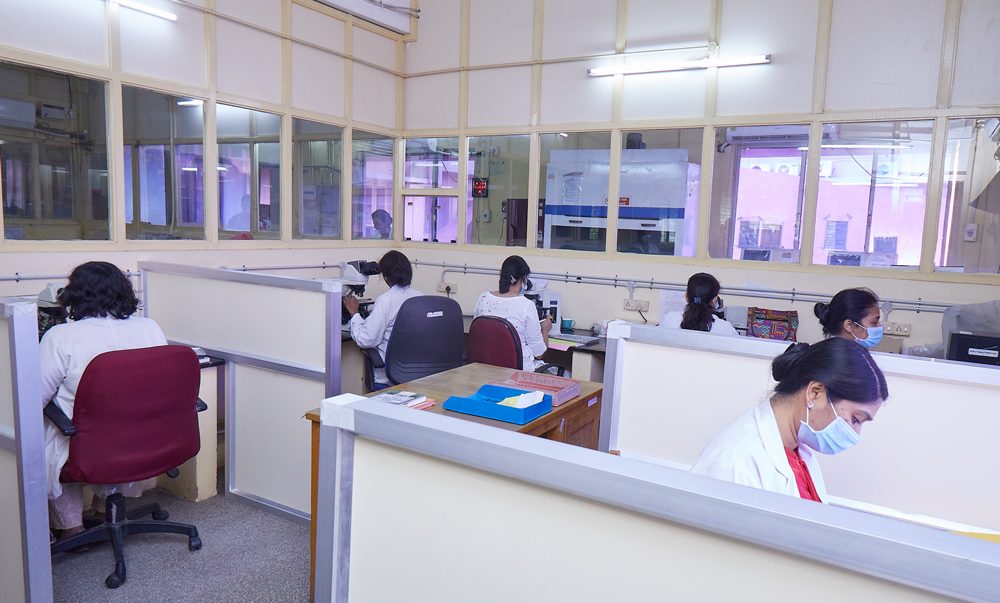
Department of pathology was started in the year 1954 at the institute and deals with cancer diagnosis. Biopsies and surgical specimens from various sites like Breast, Gastrointestinal tract, Genito urinary tract, Gynaec, Bone and Soft tissue, Skin, Throax, Head and Neck etc. are received for routine diagnosis.
We get around 9,000 biopsy specimens and 1,800 surgical specimens on an average every year. We have facility for rapid frozen section diagnosis of surgical specimens for immediate diagnosis and treatment planning. Frozen section is done routinely for establishment of diagnosis from inaccessible sites, suspected metastatic deposits for assessing inoperability of surgical cases and resected surgical margins for clearance. The frozen section room is situated in operation theatre complex. One pathologist and two technical staff are available in the operation theatre complex for rapid diagnosis of cases. About 3,600 frozen sections are done on an average every year. Tumour samples and normal tissue samples of specific organs are collected in OCT compound, snap frozen in liquid nitrogen and then stored at -186º C. Around 3,200 samples are collected every year for tumour bank.
Most of the surgical specimens are radical surgeries and meticulous study is carried out. This involves many bits from tumour areas, normal appearing areas, surgical margins, blood vessels, nerve bundles, lymphnodes, etc. The microscopic study involves, depth of invasion, vascular and capsular invasion, lymphatic and vascular emboli, perinodal spread, neural and perineural infiltration, nodal and perinodal spread, spread to neighbouring organs etc. This helps in staging and treatment planning. Many radical surgeries are done after initial chemotherapy and radiotherapy. Residual tumour in the specimen with other prognostic indicators, help in further treatment planning. Cases with 100% necrosis in limb salvage surgery do extremely well.
Histochemical studies like PAS, Giemsa, Alcian Blue stain for mucin, Reticulin stain and GMS stain for fungal organisms are done for routine diagnosis. Immunohistochemical studies are being carried out for exact histogenesis and prognostic indicator of tumors. Subtyping of Hodgkin’s and Non Hodgkin’s are done using a large panel of monoclonal antibodies for proper treatment planning. We use around 100 different types of monoclonal antibodies. The number of immunohistochemical studies carried out is around 15,000 per year
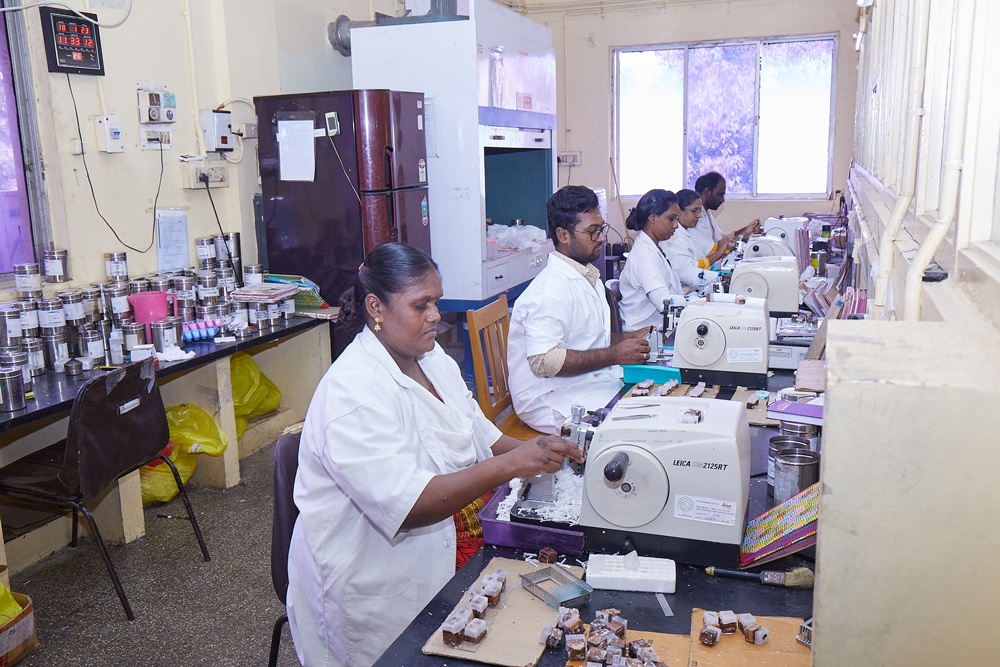
Please feel welcome to contact our friendly reception staff with any general or medical enquiry call us.
Staff members take regular teaching classes for MD, DM & MCh students and students who come as observers to the department. Important and interesting cases are discussed every week, in the department with slides for the benefit of students and staff. Every Friday, there is a tumour board meeting to discuss all cases for treatment planning. Monthly once, grand round is carried out to discuss about a specific subject for the benefit of students and staff.
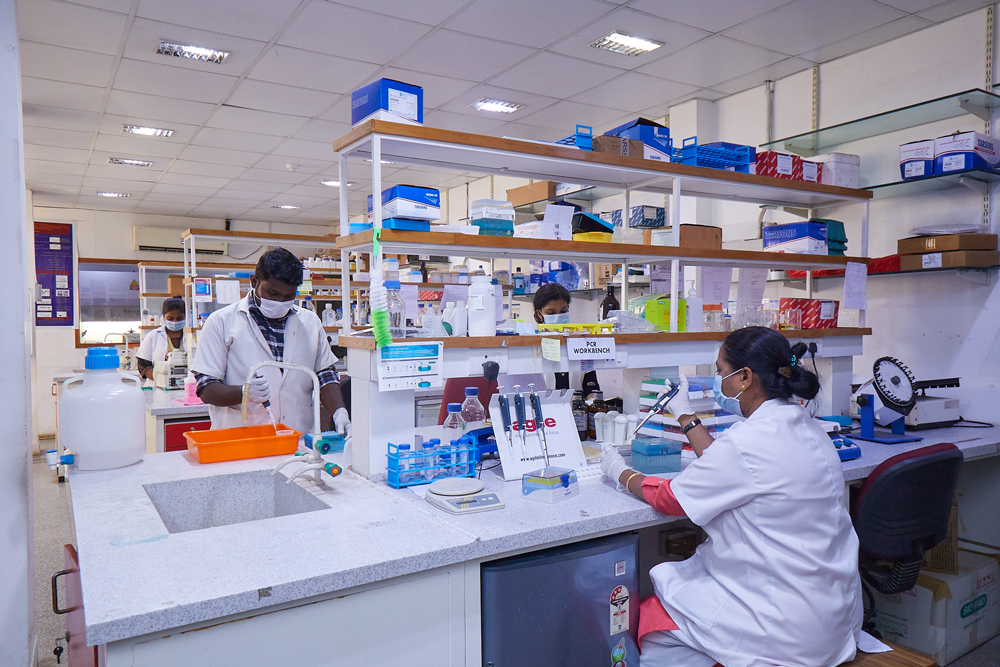
Research publications from the department are available both in national and international journals. Diagnostic service by Pathology Department is essential for patient management and contributes significantly to clinical research, without which, any publications and research work by clinical departments is not possible
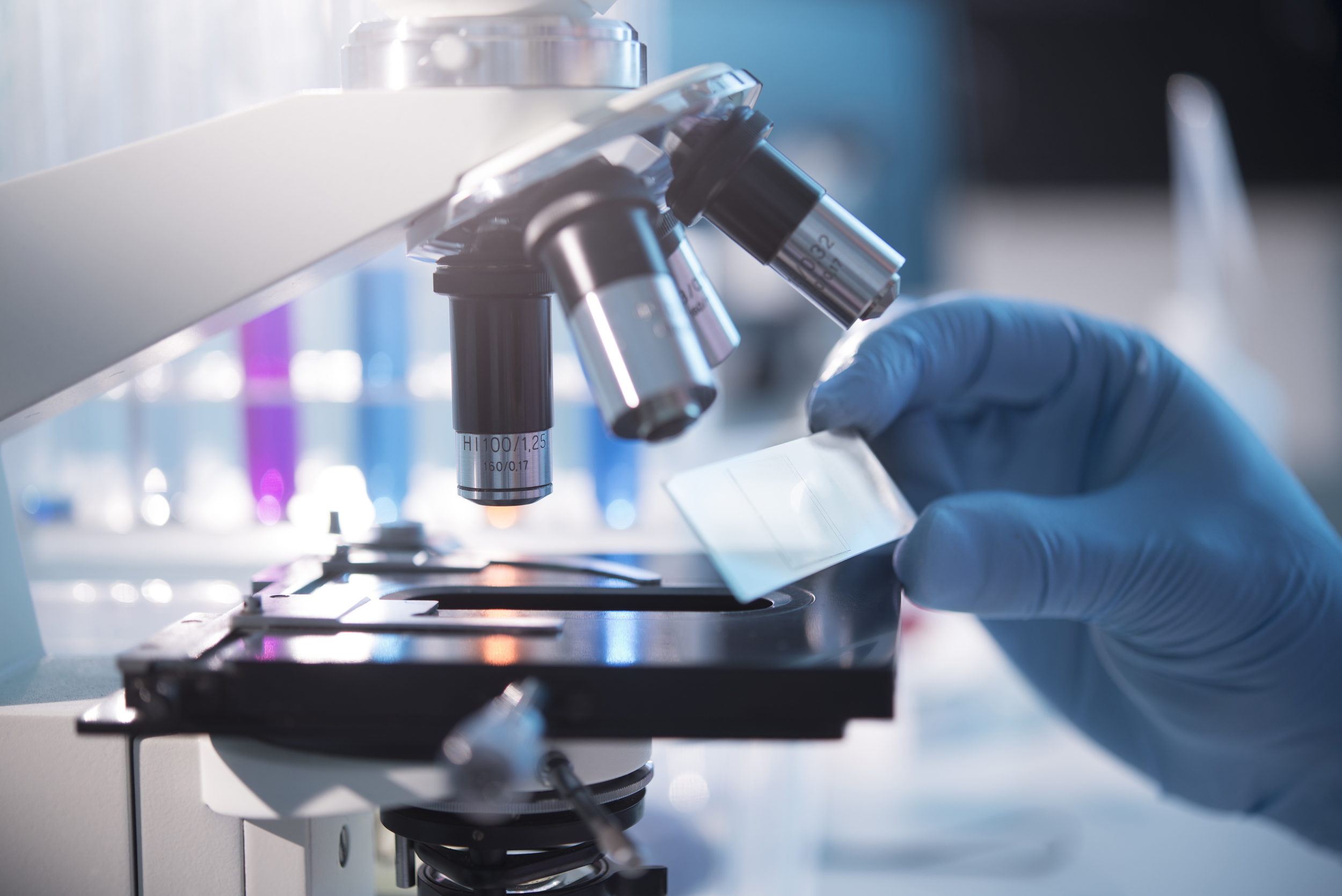
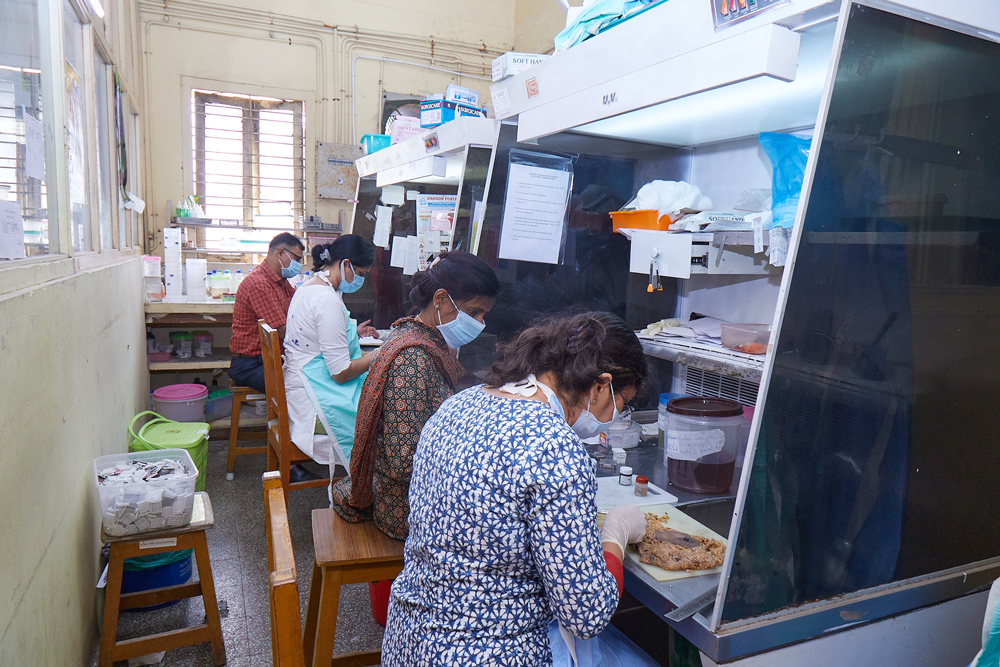
Establishment of Tumour Bank at the Center Institute (WIA), Adayar , Chennai, funded by Chennai Willing don Corporate Foundation, Chennai. Budget -16,50,000/-
Molecular characterization of Diffuse Large B Cell lymphoma and its prognostic significance , funded by Department of Science and Technology, New Delhi. Budget Rs. 16,56,000/
Preservation of paraffin embedded tissue blocks
We need proper storage of paraffin embedded tissue blocks. With the rapid emergence of Molecular oncology and molecular targeted therapies, molecular cancer research has been widely expected to be one of the fastest growing fields during the 21st century. With the increase in the number of specimen blocks that are stored every year, there is an urgent need to extend the storage area for modern air-conditioned tissue repository in order to maintain good quality blocks, which will be available to retro- specific studies using future diagnostic techniques. This will help to generate invaluable material to future generation.
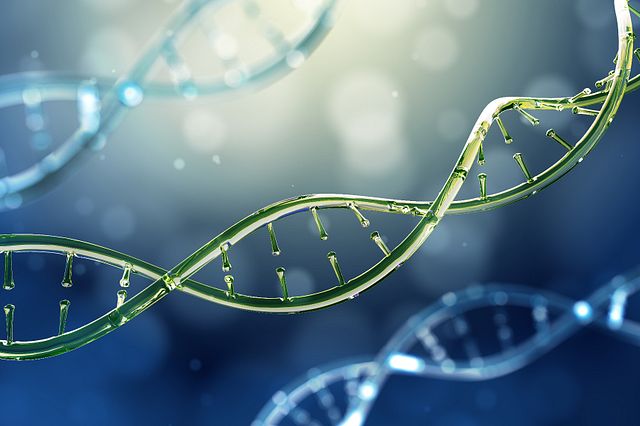
Please feel free to contact our friendly staff with any medical enquiry.